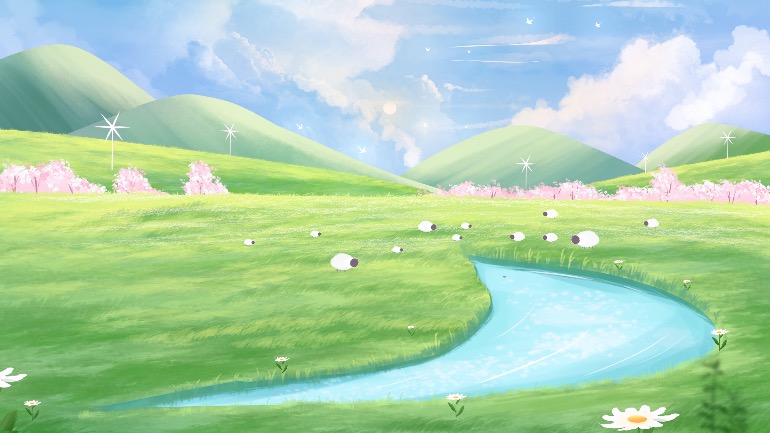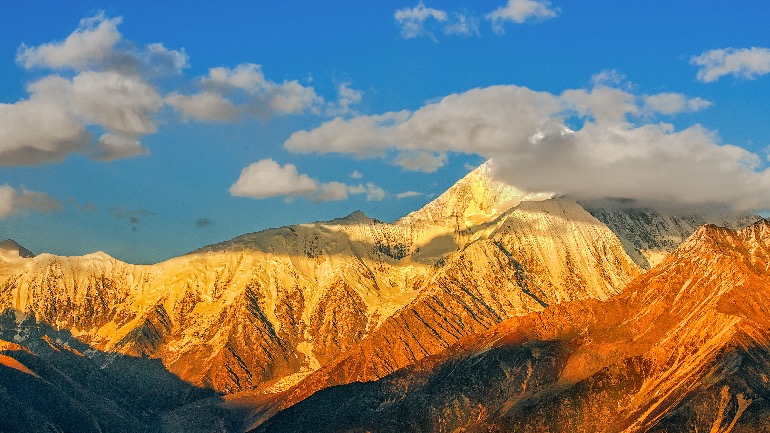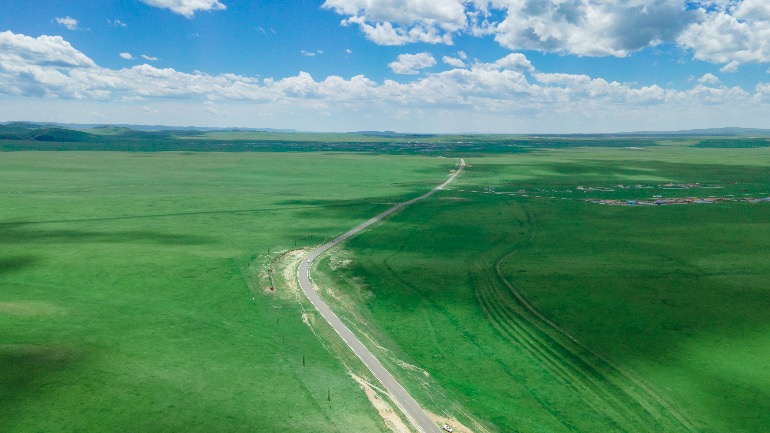Before having realized emptiness, it is not possible to truly free mind of concepts. Then, we can just adopt an approximate approach to all actions, which is relatively close to but not quite the real thing. For example, after we have learned the analytical techniques of Madhyamaka, we can fully appreciate the idea that phenomena manifest and, at the same time, are devoid of intrinsic reality, like dreams. However, this is just theoretical understanding, not true realization of emptiness.
KHENPO'S BLOG
Among the four schools of Buddhism, Sarvastivada1 and Sautrantika did not maintain any idealistic viewpoints at all, neither did the Madhyamaka (Middle Way) school of the Mahayana tradition.
The Yogachara (Consciousness Only) school of Mahayana had a number of sects, of those only one posited a small portion of its views that was somewhat similar to that of idealism.
- Quote from The Right View, "Buddhism—the Definition"
Actually, the six paramitas practiced by the bodhisattvas are all within the bounds of wisdom and compassion: generosity, discipline and patience are practices of great compassion; one-pointed concentration and insight are that of wisdom; diligence serves as the auxiliary condition to the practice of wisdom and compassion.
- Quote from The Right View, "Buddhism—the Definition"
An analogy of dedication is that a person, unwilling to keep the food just for self consumption, shares with others. Does this mean one’s virtuous karma is reduced after dedication, the same way one only keeps a dollar after sharing ten dollars with nine other people? The root of virtue is not at all like that. The more it is dedicated, the more it grows; the more it is kept for oneself, the more likely it decreases. This aspect of the root of virtue is just the opposite of that of worldly things. Thus, never forget to dedicate.
The Nirmanakaya is for the Buddha to communicate with ordinary people. Although Buddha-nature exists within the mind of every sentient being, the Dharmakaya (Truth Body) of the Buddha is rendered powerless to those who have not attained realization and thus must rely on the Nirmanakaya and the Sambhogakaya of the Buddha for guidance to enlightenment. However, neither the Nirmanakaya nor the Sambhogakaya is the true Buddha, only the Dharmakaya, the union of wisdom and compassion, is.
- Quote from The Right View, "Buddhism—the Definition"
Some people think that it is because killing and stealing are against religious beliefs that people refrain from doing so. The truth is that killing and stealing should be forsaken because they are against the natural law and hence inevitable punishment. For example, is it against the Buddhist doctrine to take poison? Although Buddhism forbids people to take poison, the real reason is poison itself which is inedible. If you insist on taking it, you will be poisoned and experience pain. This is the result of acting against the natural law. Certain kinds of poison can take effect immediately; others may take months or even years for the effect to set in. The same is true of karmic results. Although we cannot see the actual workings of cause and effect, the manifestation of effect follows the same principle. If people see that a person remains in good health after taking poison but before the effect setting in, they then assume that the person did not take poison after all. Does this make sense? In fact, one should not equate absence of pain with non-poison; it is simply not time yet for the poison to take effect. Similarly, killing and stealing are like swallowing poison. They are bound to take effect, just a matter of time.
It is stated in the sutras that practitioners are classified into three levels. Top-level practitioners are able to make progress every day. Those in the middle fare a little worse but are still capable of some breakthrough each month. Even the ones in the low level can better themselves at least by the year.
Let us ask ourselves: “Which level do I belong? Did I or can I improve over last year?” If the answer is no, we do not belong to any one of the three levels of practitioners. Since there is no fourth level, it just goes to show that we are practitioners in name only. And even that could be an overstatement.
The practice of the Four Noble Truths begins with the cultivation of renunciation and bodhicitta. Renunciation enables us to transcend samsara while bodhicitta inspires us to remain in samsara without being bound by it. Are they contradictory to each other? No, they’re not. If renunciation is not generated, samsara cannot be transcended. We will then end up in the same position as all other beings in the six realms, having no ability to save anyone. In order to transcend samsara, one must resolutely cut off all attachment to it. But that does not mean one should abandon all those remained in samsara afterwards. To abandon them means one’s goal is only to seek enlightenment for oneself and upon reaching that goal, one ignores their need for liberation. Sravakas and pratyekabuddhas, abiding in the meditation of cessation,1 have transcended samsara and at the same time abandoned those left in samsara. Alas, owing to their limited power of samadhi, they neither have the ability nor the aspiration to lead other sentient beings to liberation.
But Mahayana Buddhism calls for transcendence, not desertion, of samsara. The bodhisattvas practice emptiness, not-self, or great compassion not to escape from the suffering of samsara but to benefit sentient beings more thoroughly and effectively, and to serve the needs of others more generously.
- Quote from The Right View, "The Four Noble Truths—the Path Out of Samsara"
To attain liberation from the suffering of samsara, one must succeed in realization of emptiness being the true nature of all phenomena, regardless of its apparent difficulty. One needs to overcome this last hurdle, renunciation and bodhicitta being the first two, before going further on the path to liberation. Once the first two are fully generated, realizing emptiness will come next. Without the latter, liberation would still be beyond reach even with renunciation and bodhicitta completely aroused. There is just no way to get around this. So ultimately, one must attain realization that all phenomena are emptiness.











